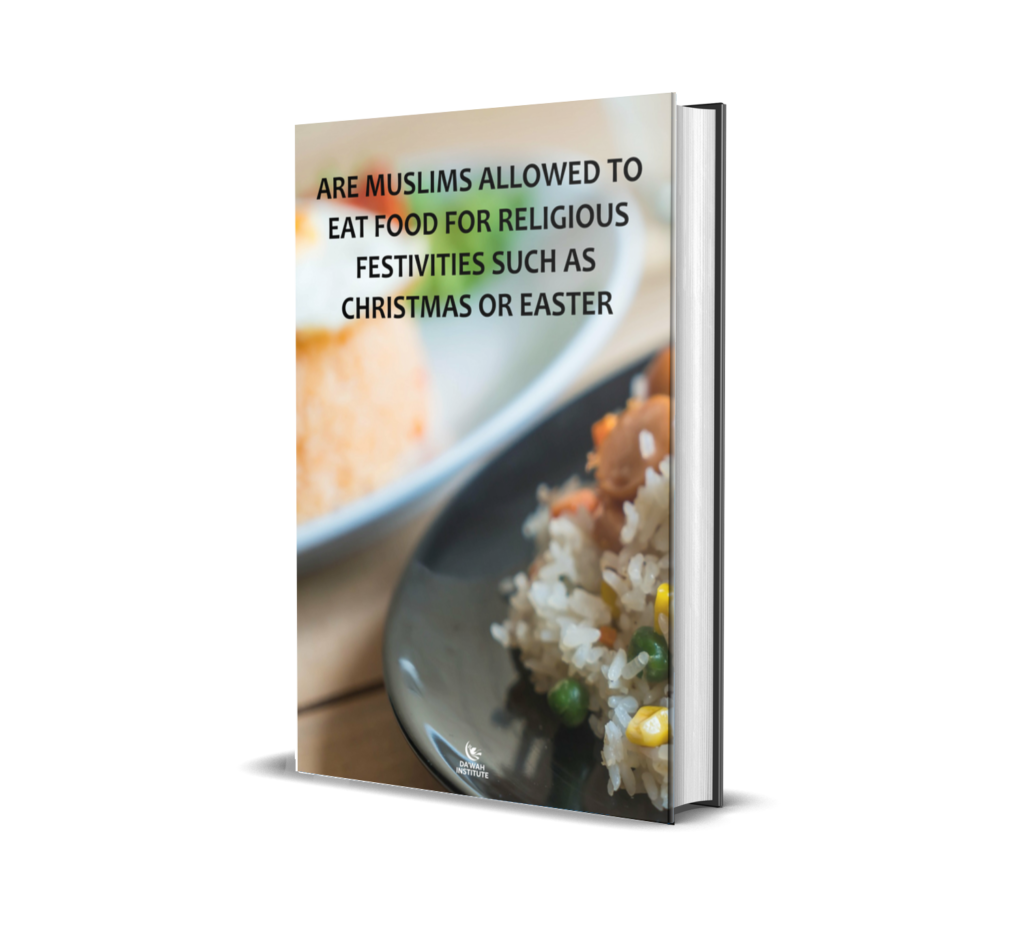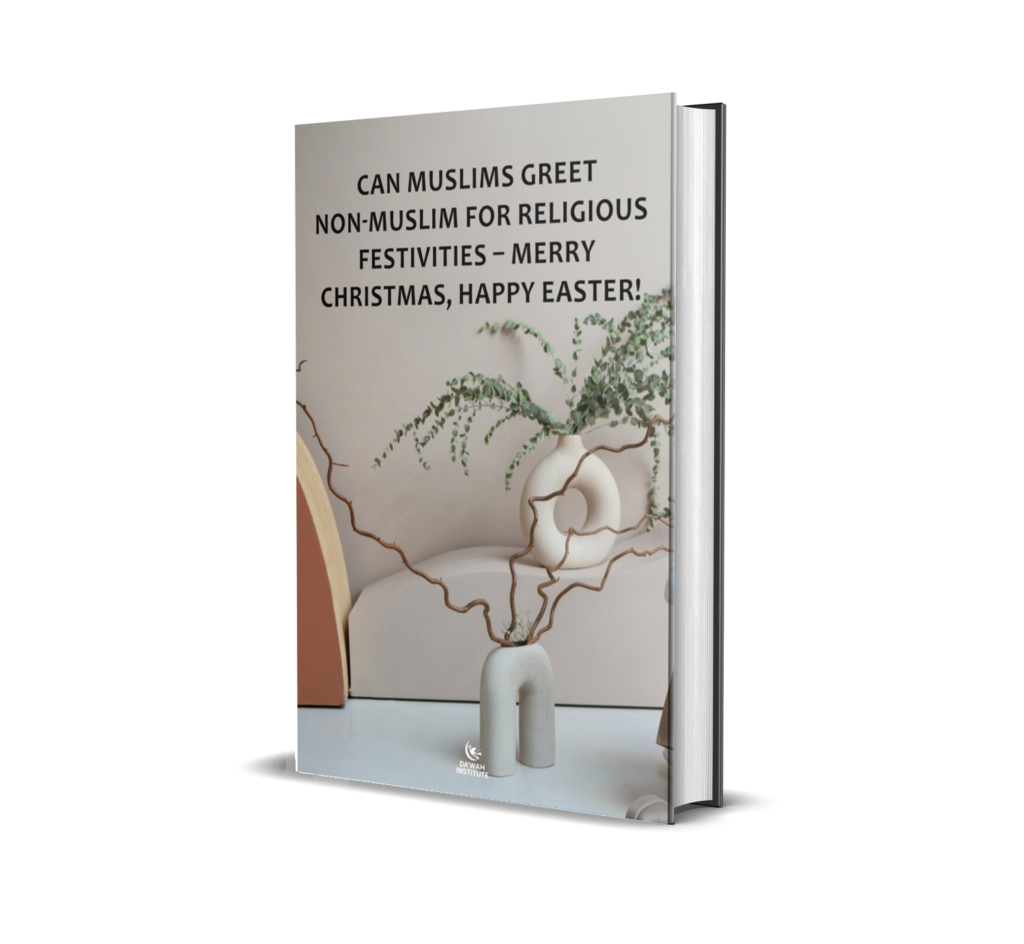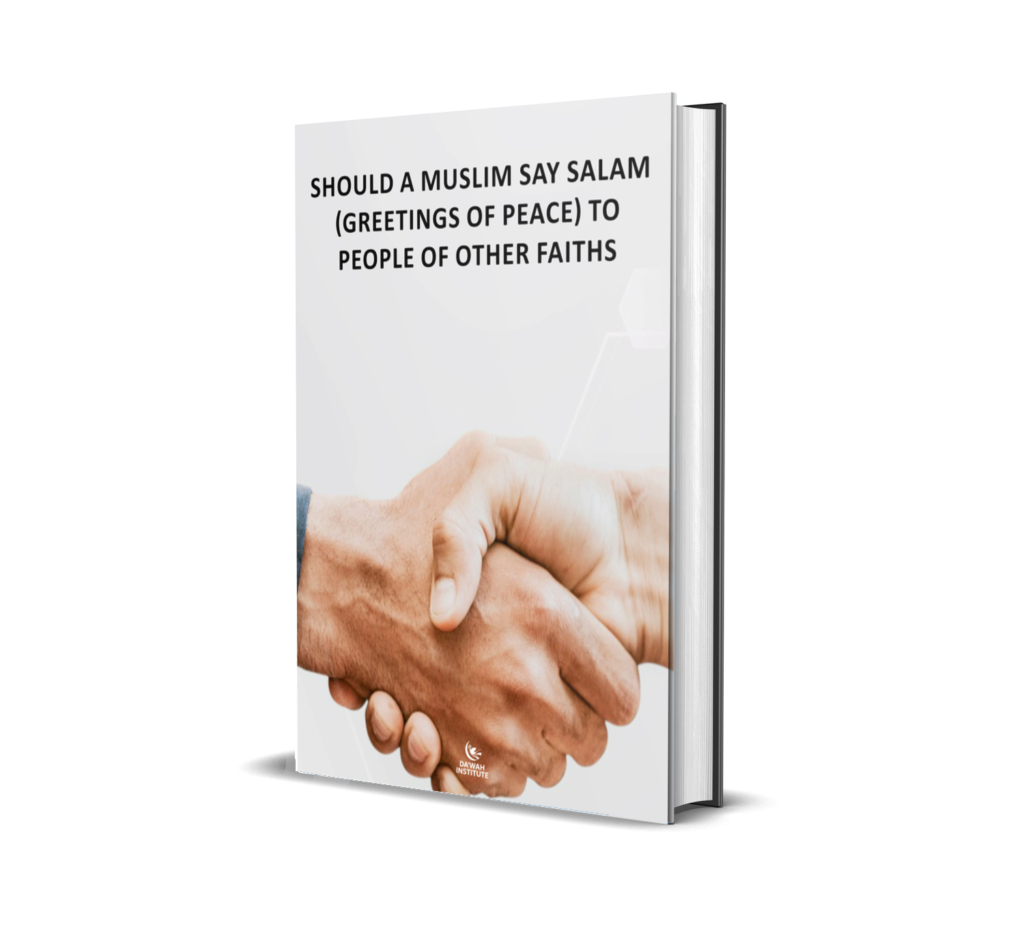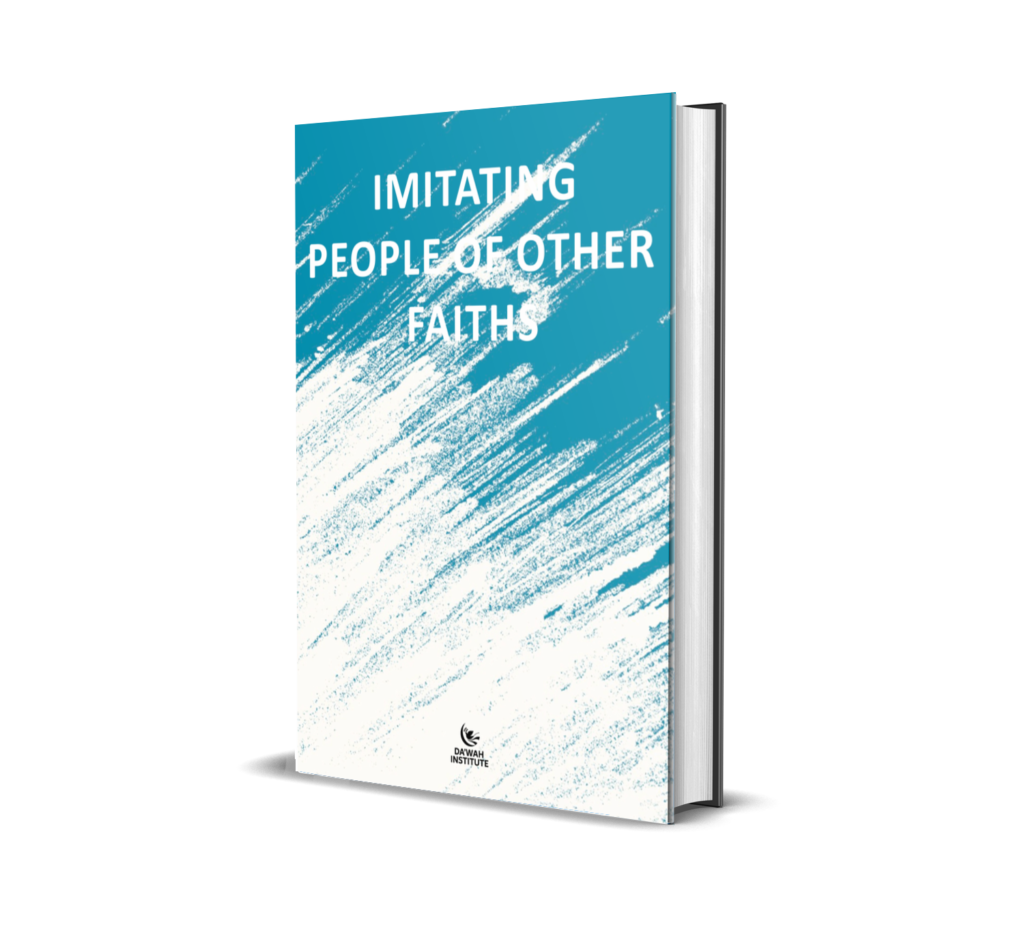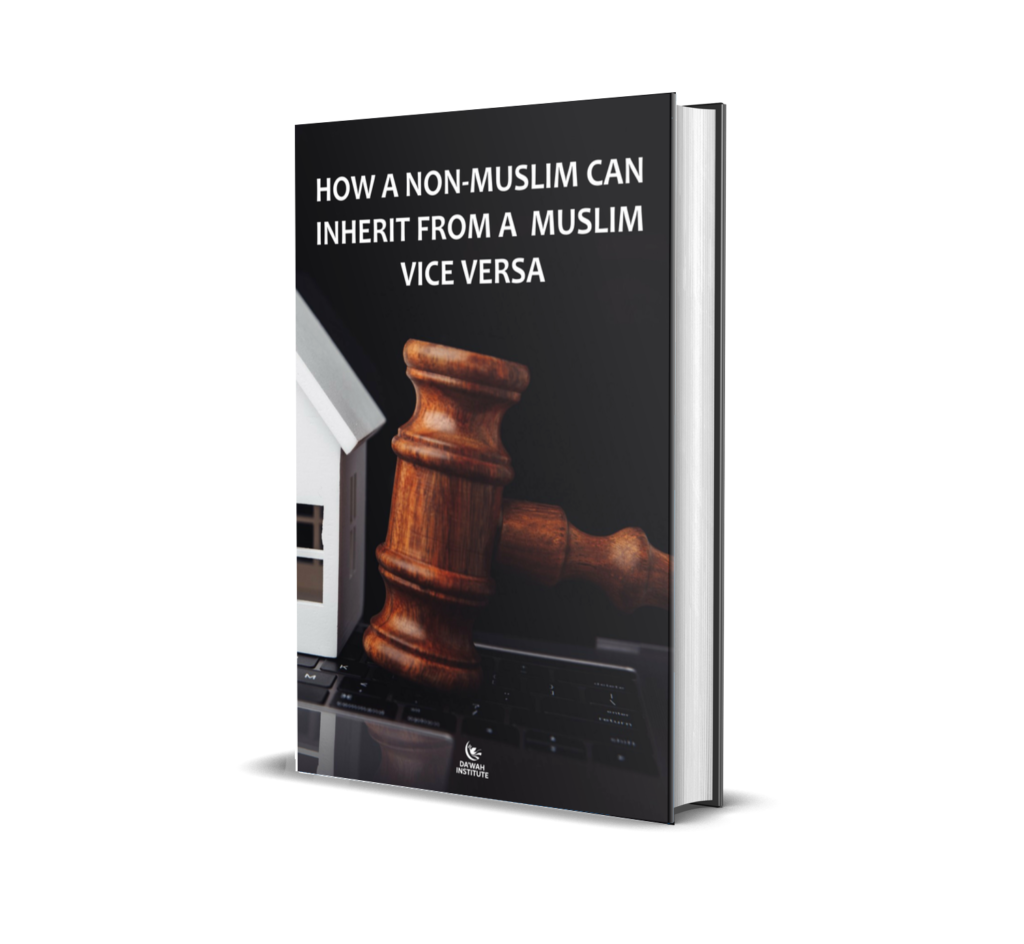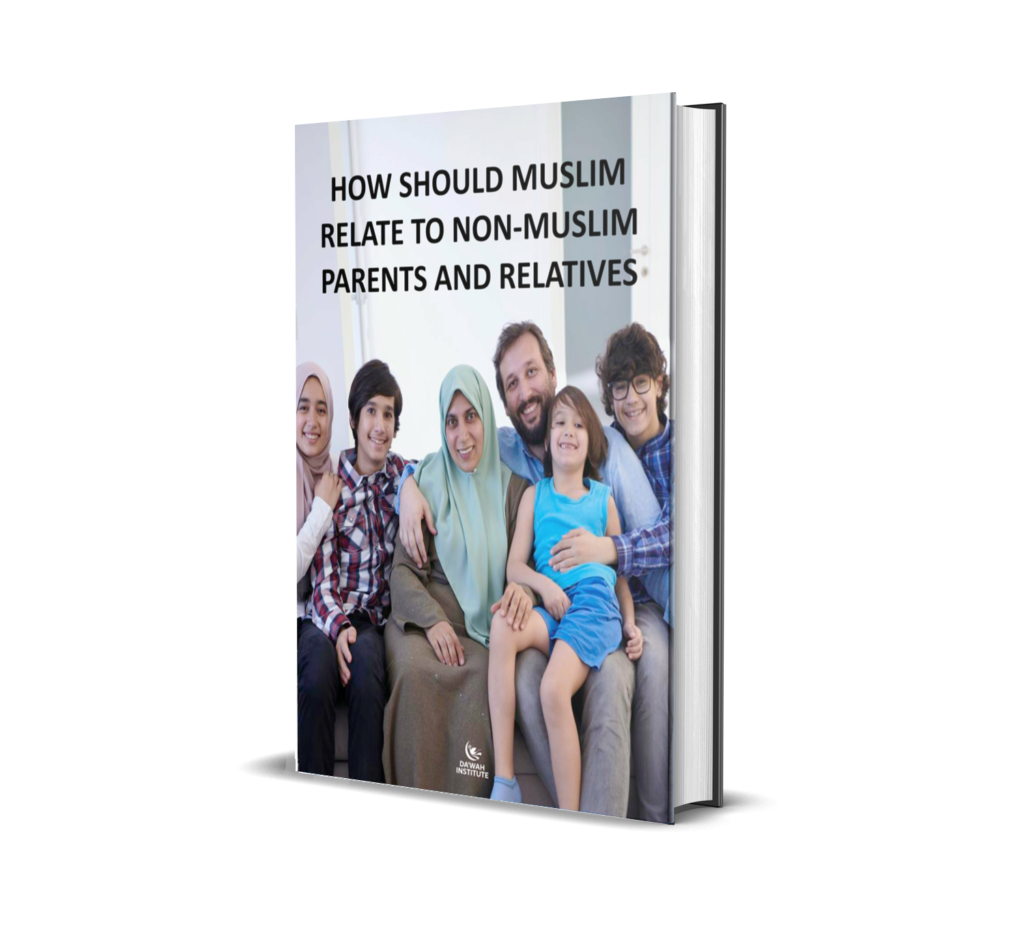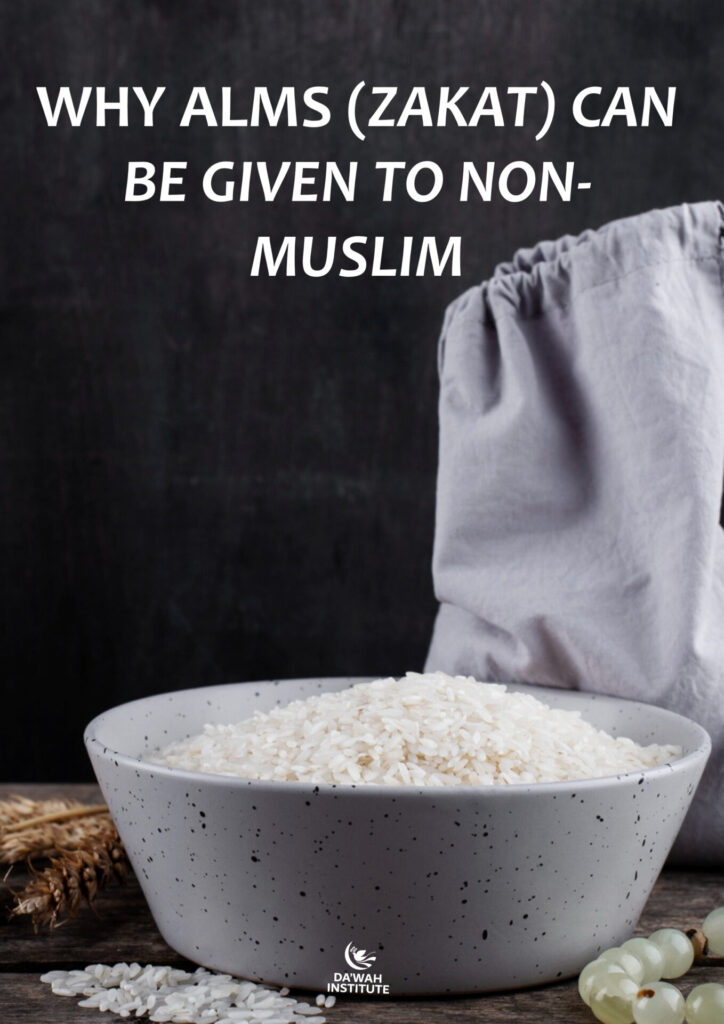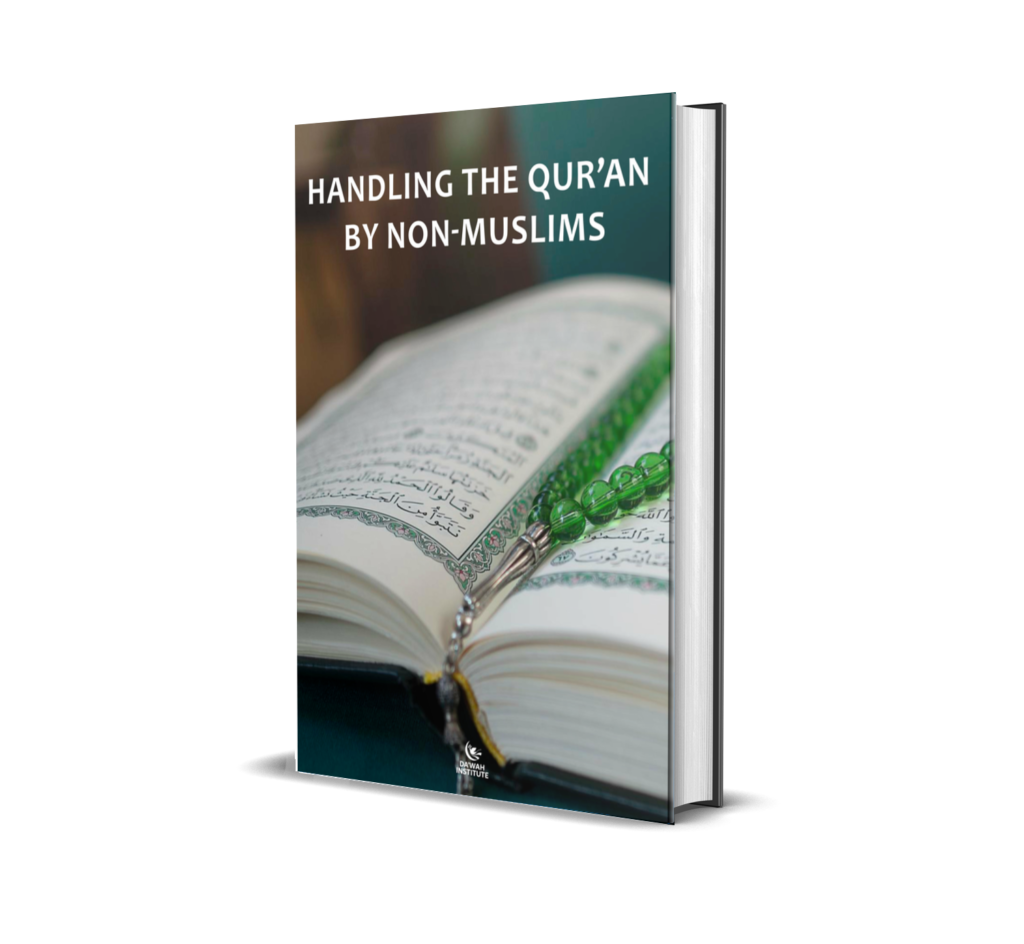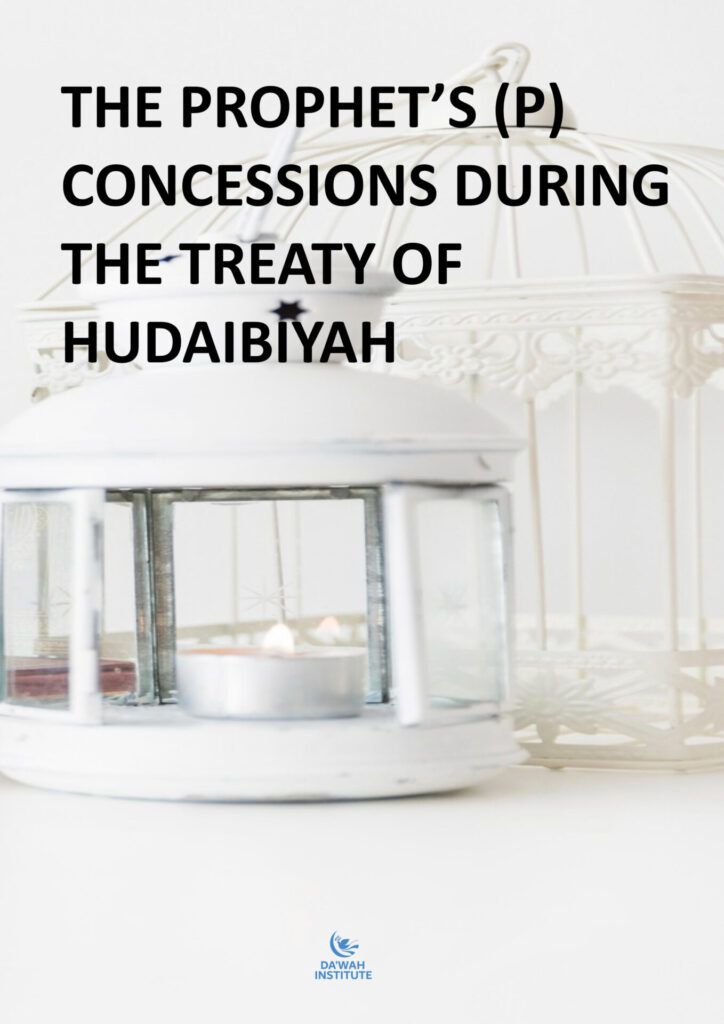Brave-Tan Articles
Some Muslims refuse food or meat from animals slaughtered for or during the religious festivities of Jews and Christians such as Christmas or Easter. Other Muslims accept such food, but dispose of it, rather than eat it. This is due…
Some Muslims refuse to eat food prepared by people of other faiths, regarding it as not “halal”. Some of these Muslims accept such food, out of courtesy, but dispose of it, rather than eat it. This is due to their…
Many Muslims get goodwill gestures and greetings from various non-Muslims during Ramadan, Eid and other Islamic occasions. Some feel obliged to equally reciprocate such gestures by also greeting people of other faiths during their religious festivities and celebrations with greetings…
Most greetings and pleasantries are customary forms of expressing goodwill and facilitating introductions and conversations. They often set the tone for the quality of interpersonal relations and dialogue. The traditional Islamic greeting which Muslims are taught is to wish peace…
Societies and civilizations have grown as result of sharing and copying from the good ideas and aspects of others. In an increasingly interdependent world, humility, curiosity and learning from others is essential to survival and progress. However, some Muslims prohibit…
Some Muslims regard interfaith inheritance as completely prohibited in Islam, and therefore sometimes deny themselves and others the benefits of inheritance. This has sometimes contributed to frustrations and tensions when non-Muslim family members are denied inheritance they believe is their…
Many families are multi-religious, thus, some Muslims have parents and relatives who are not Muslims. Many are unsure about the Islamic injunctions about relating with their non-Muslim parents and family members. How should Muslims relate to their parents and relatives…
Many Muslims believe that it is unacceptable to give obligatory alms (zakat) to people of other faiths. They regard it as a religious tax that should benefit only Muslims. Is it permissible to give zakat to non-Muslims? The Qur’an states,…
Some Muslims believe that Islam forbids people of other faiths from touching the Qur’an, especially the Arabic version. As a result, some non-Muslims who genuinely want to read the message of the Qur’an for themselves are denied access. Can non-Muslims…
Zayd bin Su’na was a great Jewish Rabbi of Medina. When Allah wished to guide him, he thought of testing the Prophet (p) by lending him eighty mithqal (350 grams) of gold for a fixed period. A few days before…
When the polytheist Quraysh leaders learnt of the Prophet’s (p) escape and migration from Mecca to Medina, they promised a reward of one hundred camels for whoever brings him back to Mecca, dead or alive. Suraqa bin Malik was one…
The Prophet (p) Removed His Title (“Messenger of Allah”) From an Official Document It was narrated by the companion Al-Bara’ bin ‘Azib that: “When the Messenger of Allah (p) concluded a peace treaty with the polytheists of Mecca at Hudaibiyyah,…
THE PROPHET (P) WOULD SWALLOW HIS ANGER WHEN PROVOKED Narratives in this section focus on how Prophet Muhammad (p) related with Muslims who behaved in an unacceptable manner, as well as how he managed relations with the hypocrites amongst them….
The Prophet (p) visited a sick Jewish boy A young Jewish boy who used to serve the Prophet (p) fell ill. The Prophet (p) visited him, and sat near his head. As he was about to pass away, the Prophet…
